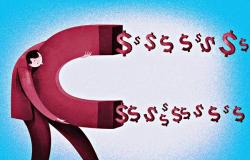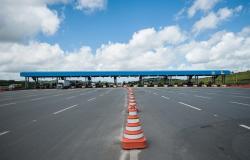
The stadium lights began to dim for the AES Brazil: to the AESB3 shares have just been demoted in the financial league of energy companies by an investment bank.
UBS BB revised the recommendation for the shares to “sell” and cut the target price from R$12 to R$9, implying a potential devaluation of 5.7% in relation to today’s closing.
According to analysts, there are two main reasons for a more pessimistic outlook for the renewable energy generation company: weaker performance and the company’s current debt level.
Shares reacted with a sharp drop to the news in trading this Monday (1). The shares ended the day down 6.37, trading at R$9.55. In 2024, the devaluation reaches 22%.
Why AES Brasil (AESB3) was downgraded
In UBS BB’s view, AES Brasil (AESB3) has emerged from the “eye of the storm”, but the prospects for the future of the renewable energy company are not calm — especially on the financial side.
Analysts even have a positive view for energy prices — which should lead to better prices for energy purchase and sale contracts — and for the company’s operational growth, but the negative risks overlap, according to UBS.
One of these issues that should weigh on the company’s results is the performance of AES Brasil’s assets. Wind complexes recorded a 10% drop in generation in relation to the physical guarantee — an indicator that determines the amount of energy that a generation equipment can supply — in 2023.
Involuntary reductions in energy production at plants are still on the radar (curtailment). In the bank’s projection, each curtailment of 5% should generate a drop of approximately R$65 million per year in Ebitda (earnings before interest, taxes, depreciation and amortization) from 2024 to 2028.
Analysts also state that the company remains “highly leveraged”, which could harm cash generation due to the size of the company’s financial expenses. As a reminder, the company ended the fourth quarter of 2023 with leverage of 5.31 times the net debt to EBITDA ratio.
Another negative pressure on AES Brasil’s operations is the short useful life of the company’s concession and the volatility driven by news about asset sales, according to the bank.
“The company’s short concession period puts AES on a timer to execute mergers and acquisitions or start building new projects, in order to preserve its finances,” wrote UBS BB, in a report.
The bank sees AES trading at a real internal rate of return (IRR) of 8.1%, below the average level of other companies in the sector, of 10.5%.
Risks and opportunities
According to analysts, AES Brasil appears as a “titan of vulnerability” to the curtailmentsince the company has the greatest exposure to the effect of cuts in energy production at plants within UBS BB’s coverage in the sector.
This is because, from 2032, the energy company intends to have 100% of its generation coming from renewable sources.
“In our view, this represents a significant risk to AES’s investment thesis, as the effects of the cut pose significant risks to AES’s cash generation. For every 5% cut, we estimate an impact on asset value of 13%,” said the bank.
On the opportunities side, UBS BB evaluates two main synergies in potential mergers and acquisitions (M&As) that the company may undertake: cost reduction and goodwill amortization.
In the bank’s analysis, the reduction in the cost of holding It is the greatest potential synergy in a potential M&A process, as the company could be incorporated into another company.
Currently, AES has a cost of approximately R$190 million per year, in line with peers such as Auren (R$150 million) and Copel (R$220 million).
AES Brasil (AESB3): Is there still a chance of recovery?
For UBS BB, there are two points that could make the bank’s “sell” recommendation for AES Brasil (AESB3) shares go wrong.
According to the bank, one of the issues that can help the company recover is the occurrence of less inefficiency in energy generation and the effect of production cuts.
“If AES is not affected by the curtailment as much as we think and provides stronger power generation, this could mean a significant potential increase to our numbers,” the analysts wrote.
Regarding debt, UBS BB’s pessimistic thesis could collapse if the company undergoes deleveraging faster than expected.
Additionally, a drop in interest rates and a reduction in finance expenses could also see the company deliver greater cash flow at a faster pace than analysts estimate, which could unlock value for the company.
Tags: AES Brasil AESB3 shares fall sharply downgrade bank analysts recommend selling stock
--




